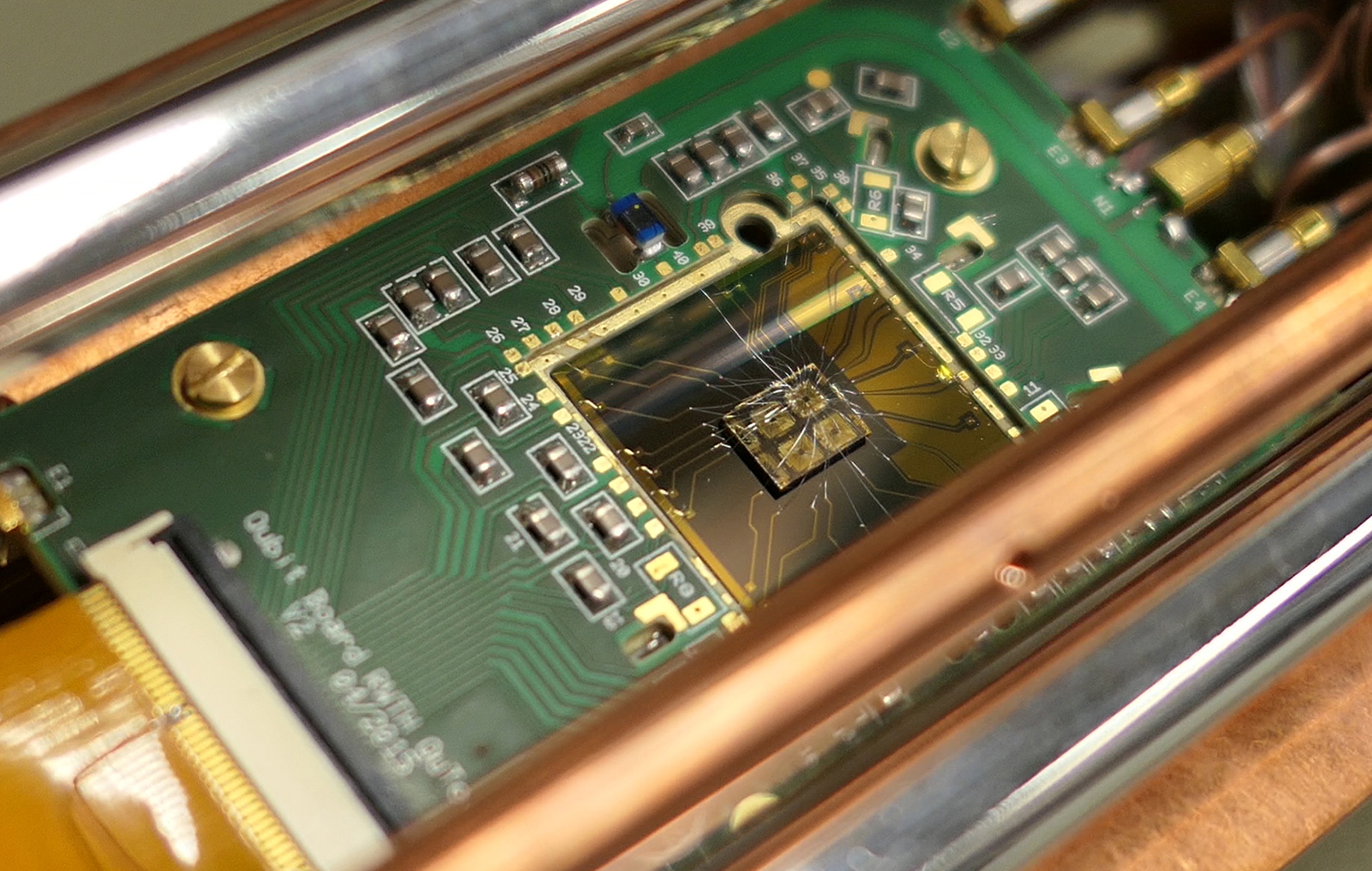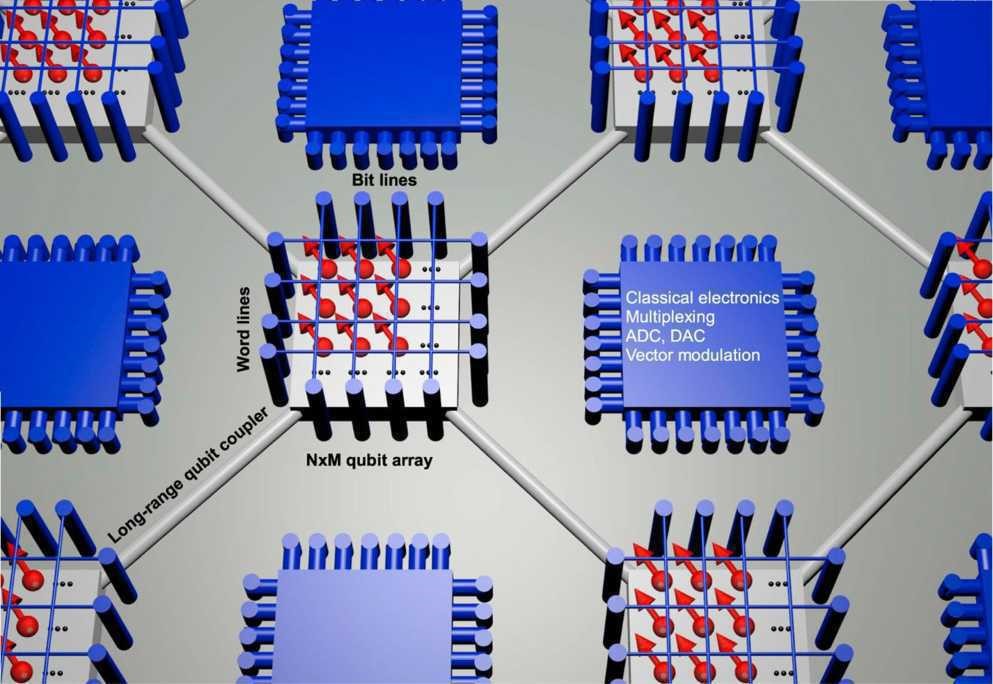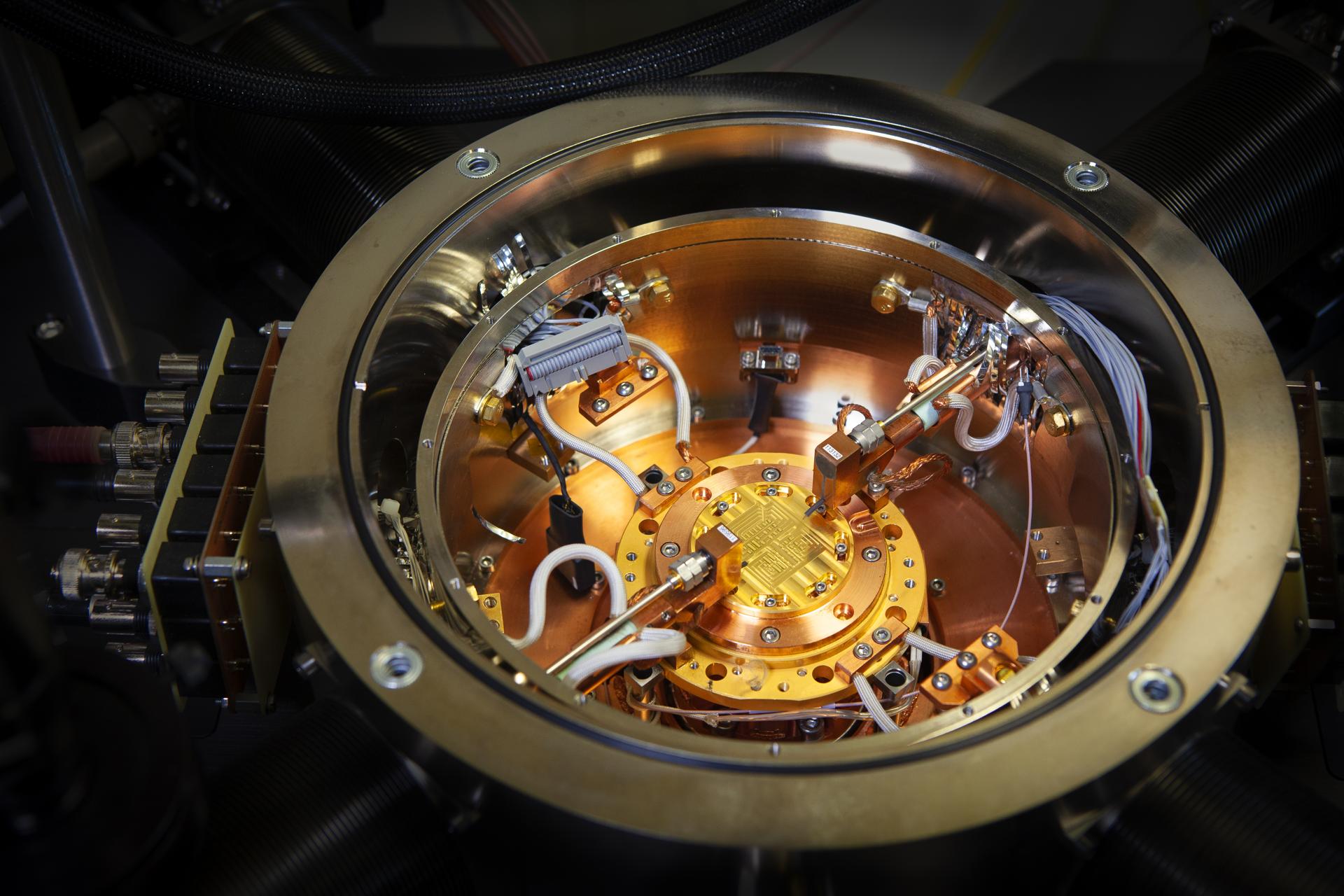Quantum shuttle to quantum processor “Made in Germany” launched
02/24/2021 - Project “QUASAR" aims to lay the foundations for the industrial production of quantum processors in Germany


Quantum computers have the potential to surpass conventional high-performance computing at certain calculations, for example, when it comes to controlling traffic flows in metropolitan areas or simulating materials at the atomic level. Yet it remains to be seen which approach will win the race among quantum computers. Experiments with superconducting qubits—the smallest units of a quantum computer—are currently the most advanced. But when it comes to large numbers of qubits, semiconductor qubits might have the edge.
A promising system for semiconductor qubits are electron spin qubits in silicon, because they have comparatively stable quantum properties and are much smaller in size than superconducting qubits. “Fundamental questions still need to be clarified. So far, it has not been possible to scale up quantum chips as easily as conventional computer chips. One problem has been geometric constraints. The qubits usually have to be very close together in order for them to be coupled to each other. Therefore, semiconductor qubits have been demonstrated up to now primarily in components that have no more than two coupled qubits close to each other. For a scalable architecture, however, we need more space on the quantum chip, for example for feed lines and control electronics explains Project Manager Prof. Hendrik Bluhm, Director at the JARA Institute for Quantum Information at Forschungszentrum Jülich.
In order to increase the distances, the researchers of the JARA cooperation of Forschungszentrum Jülich and RWTH Aachen University, together with other research partners, have developed a so-called quantum bus. These are special interconnection elements that make it possible to efficiently bridge distances of up to 10 micrometers between individual qubits. In silicon qubits, the quantum information is encoded by the spin of electrons located in so-called quantum dots—special nanoscopic semiconductor structures. The quantum bus makes it possible to capture the electrons on the quantum dots and transport them in a controlled way without losing the quantum information.
From laboratory to production
The exchange of electrons is also known as “shuttling”. In the laboratory, test structures are already delivering promising results. Now the Jülich researchers want to adapt the device design to industrial manufacturing processes. For this purpose, they have joined forces in the project “QUASAR“ with Infineon Dresden, the startup HQS, which specializes in quantum mechanical material simulations, Fraunhofer IAF and Fraunhofer IPMS, Leibniz Association (IHP, IKZ) and the universities in Regensburg and Constance.
The Fraunhofer Institute for Applied Solid State Physics IAF is responsible for the pre-characterization of qubit devices in the project. The scientists in Freiburg will apply their special expertise for device characterization by means of transport measurements in a 4K wafer probe station in order to provide fast and statistically meaningful feedback regarding homogeneity of pinch-off voltages, gate hysteresis and charge noise to the fabrication.

The press release by Forschungszentrums Jülich can be found here: Quantum Shuttle to Quantum Processor Made in Germany Launched
 Fraunhofer Institute for Applied Solid State Physics IAF
Fraunhofer Institute for Applied Solid State Physics IAF